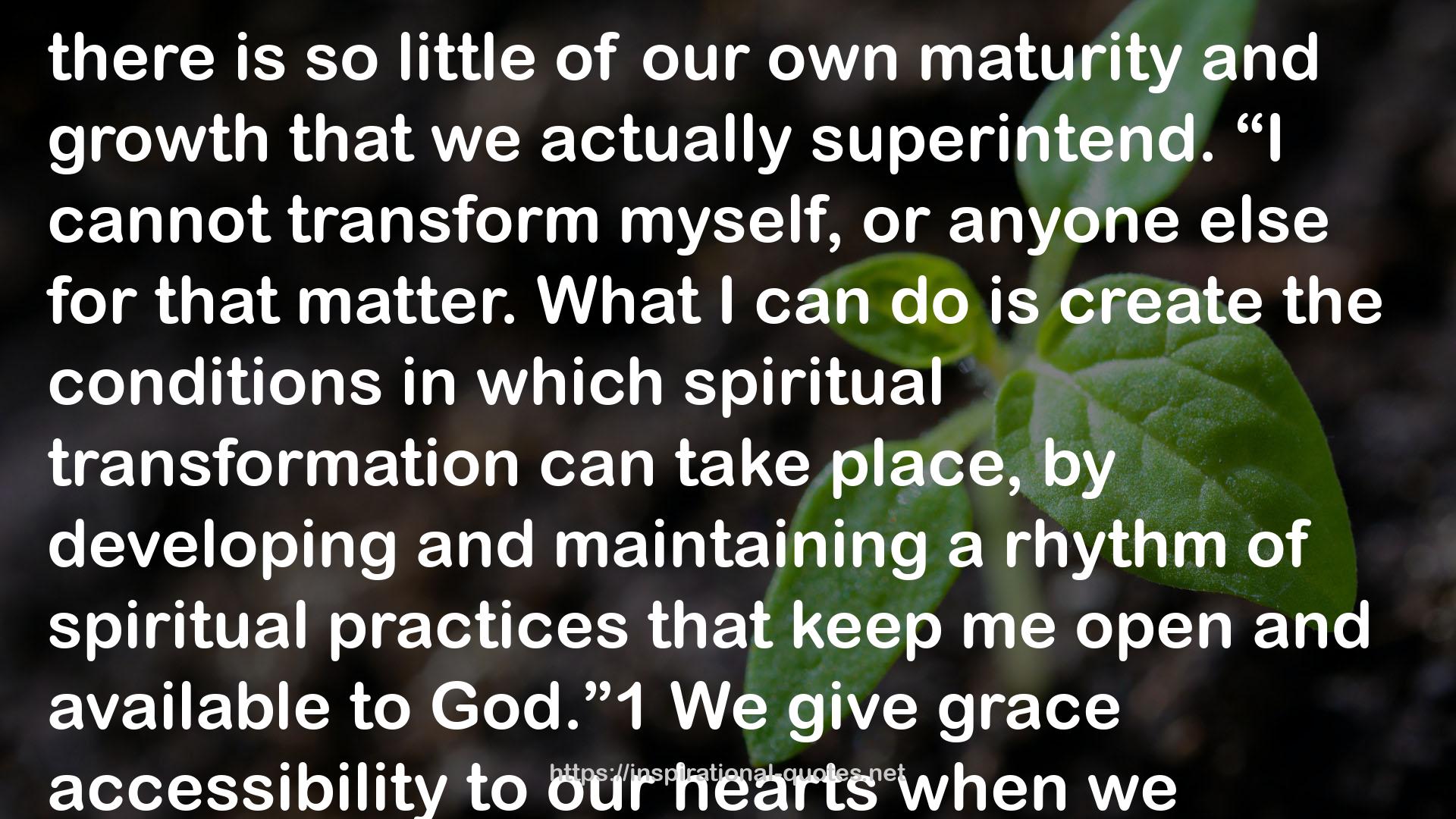" there is so little of our own maturity and growth that we actually superintend. “I cannot transform myself, or anyone else for that matter. What I can do is create the conditions in which spiritual transformation can take place, by developing and maintaining a rhythm of spiritual practices that keep me open and available to God.”1 We give grace accessibility to our hearts when we engage in intentional spiritual practices. One important spiritual practice is the practice of confession. As Andy Crouch writes, As for Christians, well, we really have just one thing going for us. We have publicly declared . . . that we are desperately in need of Another to give us his righteousness, to complete us, to live in us. We have publicly and flagrantly abandoned the project of self-justification that is at the heart of every person’s compulsion to manage perceptions. . . . This means telling the world—before the world does its own investigative journalism—that we’re not as bad as they think sometimes. We’re worse. . . . If we’re being honest about our own beauty and brokenness, the beautiful broken One will make himself known to our neighbors.2 Confession allows us to be the worst of sinners and yet remain confident that God is committed to us still. Holy desire is best "
― Jen Pollock Michel , Teach Us to Want: Longing, Ambition & the Life of Faith
